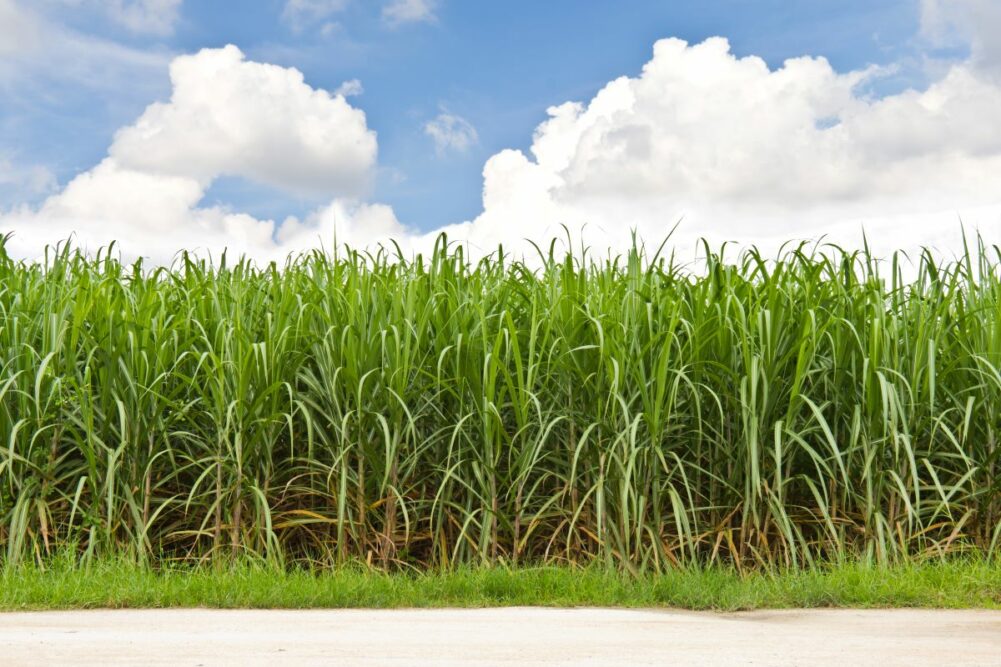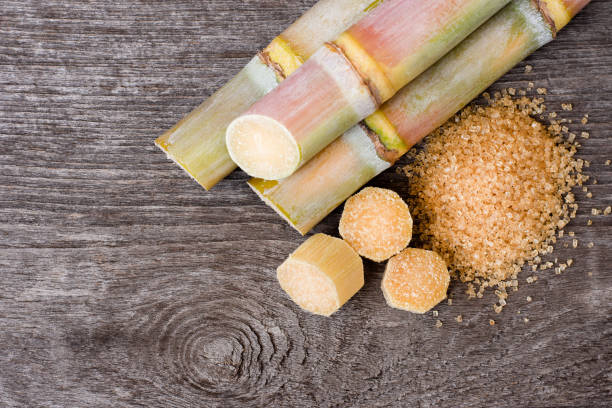Sugar and Cane: Exploring Their Role in Traditional and Modern Cuisine
Why Walking Cane Sugar Handling Chemicals Are Important for Modern Sugar Refining
The duty of cane sugar handling chemicals in contemporary sugar refining can not be overstated, as they are indispensable to enhancing both the effectiveness of removal and the total quality of the end product. Agents such as phosphoric acid and certain flocculants are used to remove impurities, resulting in sugar that not just meets consumer assumptions but additionally follows sector requirements. The ramifications of these chemicals prolong beyond high quality, touching upon market characteristics and ecological factors to consider. sugar and cane. This raises essential inquiries regarding the sustainability of such techniques and their influence on the future of sugar manufacturing.
Duty of Handling Chemicals
The efficacy of walking cane sugar processing pivots considerably on the calculated application of processing chemicals. These chemicals play a crucial function in enhancing the effectiveness and high quality of sugar extraction and refining. From the initial phases of juice removal to the last filtration actions, processing chemicals facilitate various important operations.
In the removal stage, chemicals such as phosphoric acid and calcium hydroxide are utilized to enhance the information procedure, helping to eliminate contaminations and suspended solids from the cane juice. This not just boosts the return yet additionally guarantees the quality of the last item. Furthermore, agents like flocculants help in the quick settling of impurities, thus improving the general process.
As the handling developments, chemicals are used in decolorization and formation stages. Turned on carbon and ion exchange resins offer to get rid of shade and smell, making sure that the polished sugar satisfies consumer high quality standards. Eventually, the role of handling chemicals expands past operational efficiency; they significantly influence the sensory features of the end product, adding to market competition. Thus, the precise choice and application of these chemicals are crucial for attaining optimal outcomes in cane sugar processing.
Secret Kinds Of Chemicals
Cane sugar processing relies on a variety of key chemicals that help with each stage of manufacturing. These chemicals play crucial roles in making clear, lightening, and cleansing the sugar removed from walking cane.
One primary group of chemicals consists of flocculants, such as polyacrylamide, which help in the clarification procedure by promoting the aggregation and settling of contaminations. In addition, calcium hydroxide is usually employed to counteract level of acidity and assist in the removal of non-sugar parts.
Whitening representatives, such as triggered carbon and sulfur dioxide, are utilized to decolorize the syrup, leading to a clearer end product. These chemicals aid eliminate color compounds that may affect the sugar's appearance and marketability.
In addition, phosphoric acid works as a pH regulatory authority throughout the handling phases, making certain ideal conditions for the chemical tasks entailed in sugar removal and purification.
Other vital representatives include edta (ethylenediaminetetraacetic acid), which chelates steel ions that can catalyze undesirable responses, and sodium hydroxide, which assists in pH control throughout the refining procedure. Collectively, these chemicals improve efficiency and ensure a high-grade cane sugar product.
Advantages for Sugar Top Quality
Often overlooked, using certain handling chemicals considerably enhances the general quality of walking stick sugar. These chemicals play a pivotal role in refining processes, ensuring that the last product meets rigid market requirements for pureness and preference.

Additionally, processing chemicals assist in attaining a regular granulation and structure, which are vital for consumer approval. By controlling the formation procedure, these chemicals make certain that the sugar crystals develop evenly, resulting in an extra attractive product that liquifies well in numerous applications.
In addition, the usage of these chemicals can enhance the life span of walking stick sugar by decreasing dampness absorption and microbial development. Overall, the calculated application of processing chemicals is vital for providing high-grade cane sugar that fulfills consumer expectations and market demands.
Ecological Impact Considerations

In addition, the energy-intensive nature of sugar refining, compounded by chemical usage, typically results in raised carbon emissions. This adds to environment adjustment and increases problems relating to the sustainability of current refining techniques. Furthermore, the sourcing of these chemicals might include methods that threaten biodiversity, such as monoculture farming, which lowers the durability of farming communities.

To reduce these influences, sugar refiners are significantly exploring sustainable options and adopting ideal practices that lessen Continue chemical use. Implementing strenuous environmental monitoring systems can assist make certain that the refining procedure lines up with ecological standards and advertises biodiversity. Ultimately, a balanced strategy that focuses on both sugar high quality and ecological stewardship is essential for the long-term practicality of the sugar sector.
Future Fads in Refining
As the sugar sector faces the environmental difficulties associated with traditional refining methods, ingenious techniques are arising to boost both effectiveness and sustainability. One considerable fad is the adoption of environment-friendly chemistry concepts, which prioritize using non-toxic, naturally degradable processing chemicals. This change not just decreases environmental influence however additionally addresses customer need for cleaner manufacturing approaches.
One more promising growth is the execution of advanced filtration technologies, such as membrane splitting up and adsorption processes. These methods improve the clearness and quality of the sugar while minimizing the volume of wastewater produced throughout refining. Additionally, the assimilation of electronic modern technologies, consisting of IoT and AI, is changing functional efficiency by allowing real-time monitoring and predictive upkeep, hence minimizing source waste.
Moreover, using spin-offs from sugar refining, such as bagasse and molasses, is gaining traction. These materials can be exchanged biofuels or value-added products, adding to a round economy within the industry. Jointly, these patterns signal a shift towards more sustainable practices that not only boost functional performance but likewise line up with international sustainability objectives, making certain the future viability of sugar refining.
Final Thought
Cane sugar handling chemicals are important in modern sugar refining, significantly improving the effectiveness and high quality of sugar extraction. The critical usage of these chemicals not only improves the pureness and flavor of the final product yet also ensures consistent formation and appearance. As the sector progressively prioritizes sustainability, the adoption of environmentally-friendly handling representatives is most likely to form future fads in refining, eventually causing better products and expanded service life for consumers.

Inevitably, a balanced strategy that focuses on both sugar high quality and environmental stewardship is crucial you can try here for the long-term feasibility of the sugar industry.
Walking cane sugar processing chemicals are crucial in contemporary sugar refining, considerably enhancing the efficiency and top quality of sugar removal.